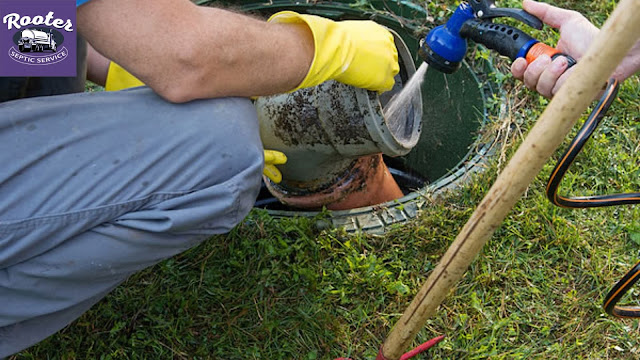Is Your System in Lilburn Due for Service?
If you live in Lilburn, Georgia, and have a septic system on your property, it’s crucial to understand the importance of regular maintenance and, in particular, septic pumping. Proper care of your septic system not only protects your home and health but also helps preserve the environment in this beautiful part of Gwinnett County.
What is a Septic System?
A septic system is an underground wastewater treatment structure commonly used in areas that lack centralized sewer systems, such as many residential neighborhoods in Lilburn. Typically, it consists of a septic tank and a drain field. Wastewater from your home flows into the septic tank, where solids settle to the bottom and scum floats on top. The relatively clear liquid in the middle then flows into the drain field, where it is naturally filtered by the soil.
Why Septic Pumping is Essential in Lilburn
Over time, solids accumulate in the septic tank. If these solids are not pumped out regularly, they can overflow into the drain field, causing blockages and failing system components. This can lead to sewage backups, foul smells, and unsanitary conditions that can be hazardous to your family’s health.
In Lilburn, the humid subtropical climate—with its hot summers and mild winters—can accelerate the breakdown of organic matter in the septic tank, but it doesn’t eliminate the need for professional pumping. The soils here are often clay-based, which are less permeable, making the proper functioning of your drain field even more critical.
Regular septic pumping in Lilburn prevents expensive damage, protects your property’s value, and reduces environmental risks such as groundwater contamination.
Signs Your Septic System Needs Service
Homeowners in Lilburn should watch for signs indicating their septic system may be due for maintenance:
Slow Drains or Gurgling Sounds: Toilets, sinks, and showers draining slowly or making suspicious noises can indicate a full or failing septic tank.
Unpleasant Odors Outside or Inside Your Home: Sewage smells around your yard, near the septic tank, or inside your home are warning signs.
Wet or Lush Spots in Your Yard: Drain fields enhance vegetation growth. If you notice soggy ground or overly green patches near your septic system's location, there could be a leak.
Sewage Backup in the House: This is a definitive indicator that immediate pumping and repair are needed.
If you observe any of these symptoms, it’s time to schedule professional septic pumping.
How Often Should You Pump Your Septic Tank?
The frequency of septic pumping depends on factors such as tank size, household size, and usage. The Environmental Protection Agency (EPA) generally recommends pumping every 3 to 5 years. However, many experts suggest that given the average household size in Lilburn and the local soil conditions, pumping every 3 years is a safer bet.
Keep in mind that neglecting regular pumping can cost thousands in repairs down the road, including drain field replacements, which can be highly disruptive and expensive.
Benefits of Regular Septic Pumping in Lilburn
Extended System Life: Regular pumping reduces the risk of solids clogging the drain field and causing system failure.
Cost Efficiency: Pumping is much less costly than repairing or replacing components of the septic system.
Health and Safety: Prevents sewage from backing up into your home or leaking into the environment.
Protects Local Water Quality: Lilburn is part of a community that values its natural resources, including streams and groundwater. Proper septic system maintenance prevents contamination from untreated sewage.
The Pumping Process: What to Expect
During septic pumping, a licensed technician will locate your septic tank and open the access lid. They will use a vacuum truck to safely remove liquids, sludge, and scum from the tank. After pumping, they will inspect the tank for signs of damage or leaks and advise if repairs are needed.
In Lilburn, professionals are familiar with local codes and environmental guidelines, so they can ensure your septic system remains compliant with Gwinnett County regulations.
Environmental Considerations in Lilburn
Lilburn residents appreciate the city’s green spaces, parks, and natural beauty. Proper septic system maintenance is essential for protecting these resources. Failing septic systems can leak harmful bacteria, viruses, and nutrients that pollute local water bodies, affecting wildlife and human health.
Septic pumping is a simple step every homeowner can take to protect the environment, comply with local health codes, and contribute to a cleaner community.
Final Tips for Septic System Care in Lilburn
Avoid Flushing Non-Degradable Items: Wipes, feminine hygiene products, and chemicals can harm your system.
Conserve Water: Excessive water use strains your septic system. Fix leaks and use water-efficient appliances.
Maintain Your Drain Field: Don’t park vehicles, plant trees, or place heavy objects over the drain field.
Schedule Regular Inspections: Ask your septic service provider to inspect your system annually to catch issues early.
If you’re unsure whether your system is due for service, it’s wise to schedule an inspection with a qualified professional in Lilburn. Regular maintenance, including timely pumping, is key to ensuring your septic system operates efficiently and protects your family, property, and local environment.
Taking care of your septic system through scheduled septic pumping in Lilburn is a straightforward way to avoid costly repairs and maintain peace of mind in your home. Remember, prevention is always better than cure when it comes to your septic system. Don’t wait for a problem to arise—act now to keep your system running smoothly for years to come.




Comments
Post a Comment